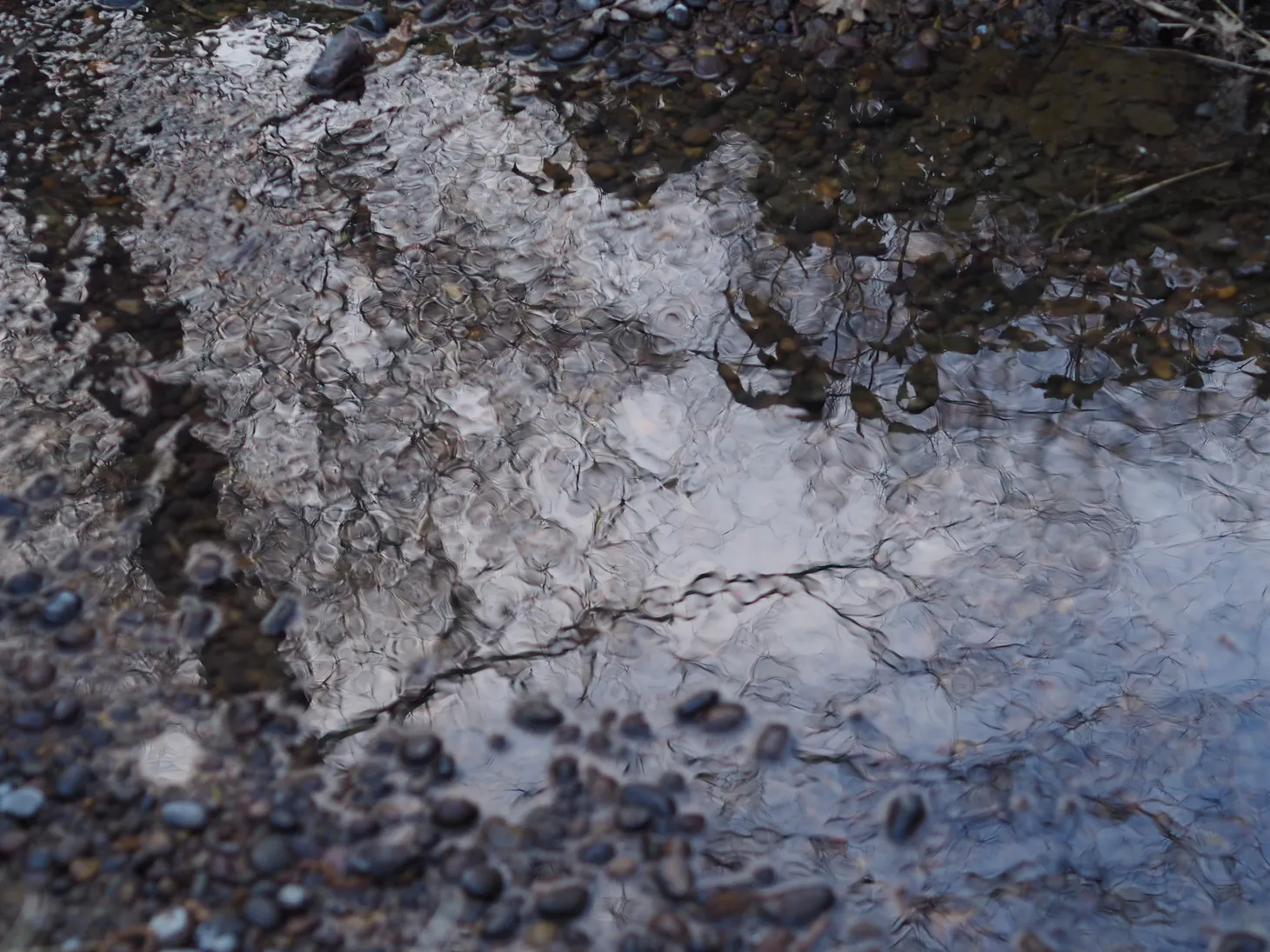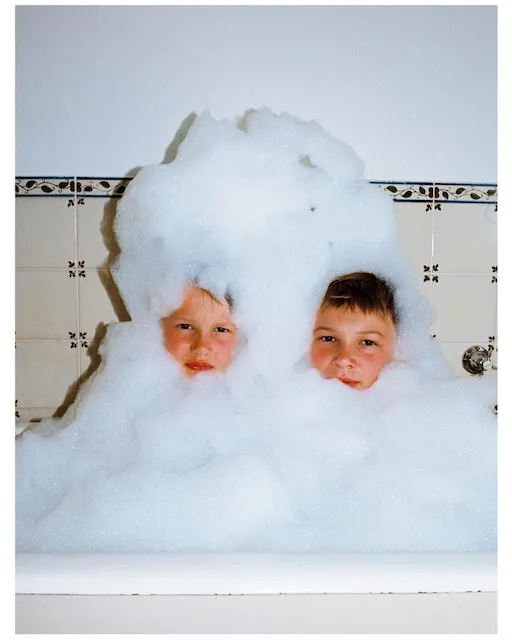The Philosophical Elephant
Me being right doesn't make you wrong. A simple parable about the many sides of reality.
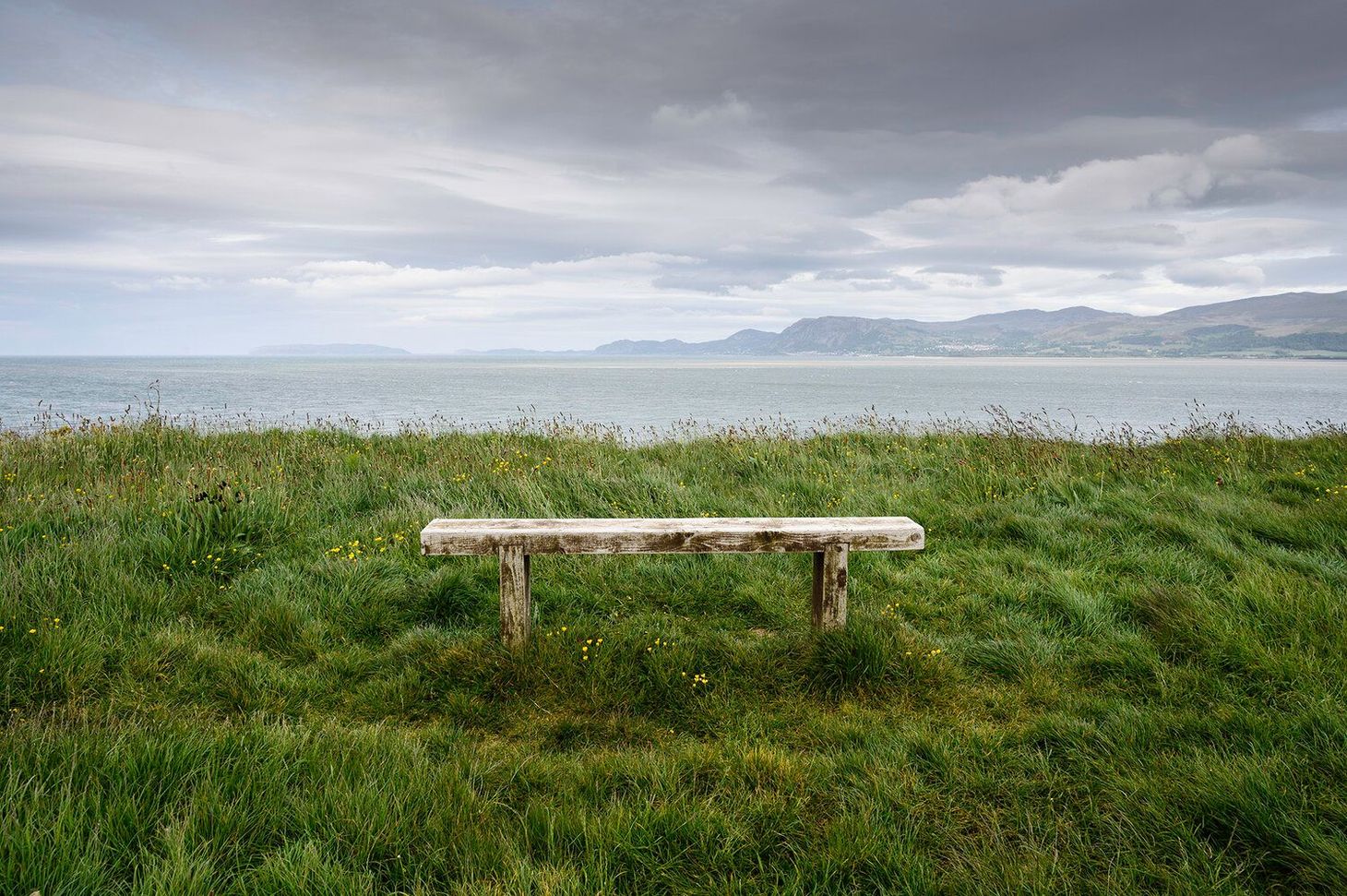
Table of Contents
Good Lookers -
Hello from the end of a very wet British summer!
It's me, Menka Sanghvi, the sender of these Just Looking Letters about attention, mindfulness, perception, and that "huh?" kind of gentle curiosity that keeps us awake to everyday wonders.
You're getting this Letter because you signed up for it on the website or at a photowalk - but if it's not your thing anymore, it's always just one click to unsubscribe easily at the bottom.
About many-sidedness
Do you know the story about the seven blind men and the elephant? Each man stands next to a different part of the animal and is asked what he makes of it. The man touching the ear says it is a fan; the man by the tails thinks it's a rope; the man who stands at the tusks concludes it's a spear - and so on. They are all equally correct, and equally incorrect.
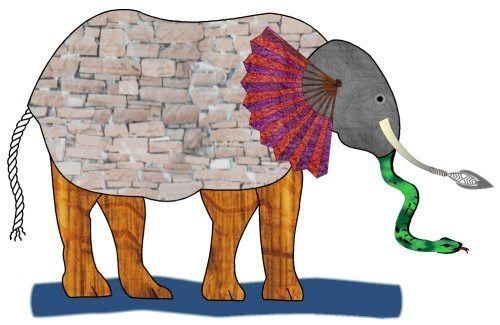
It is a very relatable conundrum for our current times in which algorithmically filtered social media and news only ever give us a narrow perspective of the information available - effectively putting blinders on our eyes. But it's not just access to information that is at stake. What we see of the world gives rise to our beliefs and stories, and intimately shapes our actions in the world.
The parable is often narrated to explain the powerful Jain philosophical concept of Anekāntvād - which translates to "not-one-sidedness", or simply "many-sidedness". It proposes that it's possible for more than one person to be correct, or at least partially correct. It makes truth a non-zero-sum game. Me being right doesn't make you wrong.
Historically this concept of Anekāntvād was associated with a teaching of non-violence. Some scholars describe it as an "intellectual non-violence". But I think it's more than that. In conceding even a tiny margin to others, understanding that they may see the world differently, we stay connected. Keeping an open mind also keeps the heart open - it is a way of practicing compassion.
[Added later]
Read more about this idea (and find out why Gandhi loved this story)
Looking Exercise
Next time something catches your attention, and perhaps has you reaching for your camera, pause for a moment and consider this: How might someone else see this? Someone with a different culture, history, profession, age, gender, height, species even - in other words, someone with a different perspective. Could your fan also be a rope? Could your small pile of leaves also be a huge crunchy mountain? Perhaps the best kind of zoom lens is our feet, and our imagination. So find one object, and look at it from multiple perspectives. What shifts?

Share your photo: You're welcome to share a photograph with me by replying to this email, or with the wider community on Instagram using #wearejustlooking. I love seeing these. But if you're a sharer (like me), do pause to consider how the intention to share in the future, influences what you see now.
Links about Looking
The Bench Project (see) - photographer Adrian Cann beautifully creates the project I've been talking about for years but never made happen. It brings me so much joy to see this! In each image, I can imagine myself sitting on that bench.
Healing Power of Self Portraits (watch) - generally, we only really see ourselves from one or two angles. In the mirror, in our selfies and in zoom calls. Sometimes we catch ourselves reflected in a window or a puddle and it's surprising to see ourselves that way. Here photographer Sean Tucker talks about doing this looking with the strength of intention - a healing intention - to accept ourselves more fully.
"I looked at that portrait as though it were a separate person. So every scar was a trial overcome, every line was another year of progress. The story of that person's life was written on their body... I was able to gain a more objective view of who I might be as a human being, and the "me" that other people interact with on a daily basis."
- Sean Tucker
How Science Adds To Beauty (watch) - some think that understanding the science behind something takes away beauty and wonder from our experiences. Legendary physicist Richard Feynman (and me!) find the opposite to be true. Just take a simple flower, and consider all the ways in which it is beautiful...
Why Adults Lose the "Beginner's Mind" (listen) - the excellent Ezra Klein interviews psychologist Alison Gopnik on what children can teach us about keeping an open mind.
Biography of Silence (book) - a sublime read about silence, by Pablo D'Ors.
"Today I know that it is a good idea to stop having experiences, whatever the genre, and to limit oneself to living: to allow life to express itself as it is, and not to fill it with the artifice of our travels or readings, relationships or passions, spectacles, entertainments, searches... All of our experiences tend to compete with life and almost always manage to displace it and even cancel it out. True life is located behind what we call life."
- Pablo D'Ors
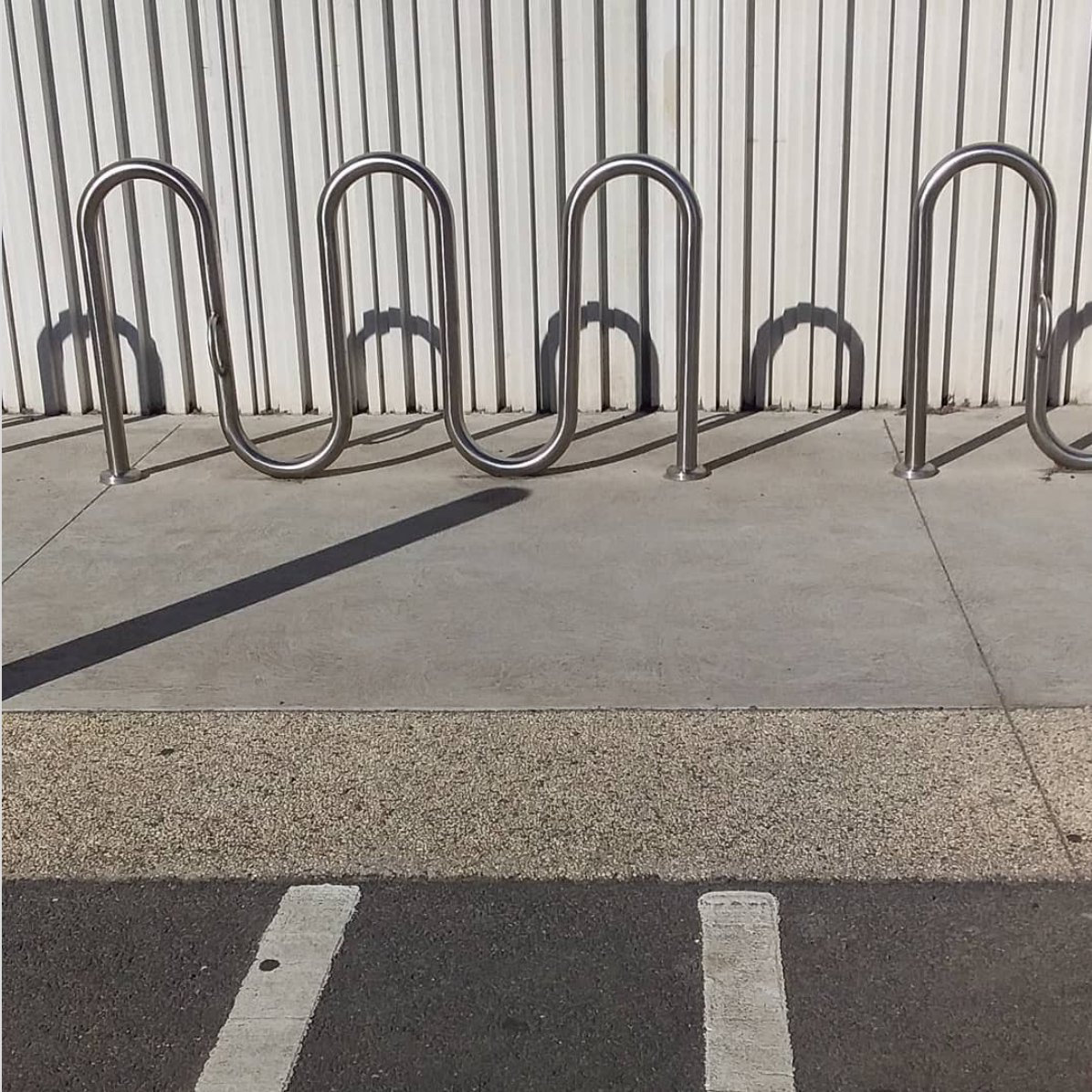
Project Update
It's funny how choices can stifle creativity. When I have many things that I could do I often end up doing none of them! That's how it's been with my writing recently. I've been spreading myself a bit too thin.
So I've decided to focus more energy on this newsletter and sharing inspiration with all of you - this wonderful community. I recently ran a 21- day "Seeing Slowly" event with a group of 93 of you (Hello if that's you, are you still seeing slowly?), and while it was tricky to find time to write a letter every day, it was also a creative joy. Building on that momentum, I'm making a few changes here.
- More Letters - I plan to adopt a more frequent and predictable schedule for sending these. Certainly not every day, or even every week, but I am considering a shorter-and-fortnightly vs. slightly-longer-and-monthly. Leaning towards a monthly cadence, but be helpful to hear any of your preferences.
- Feature stories - In addition to links and prompts, I'm going to share more original writing, by including a feature story of a concept or idea that I think you'll find useful - like the elephant parable. If it's short enough it will go in, otherwise, I'll post it on the website and link to it. Hope you enjoy these!
- Clarity on agenda - This project started as a series of photowalks but the underlying philosophical project has always been about looking at life more closely - especially the mundane and difficult moments - to find meaning and wonder in it all. So perhaps I'll stop thinking of us as a "mindful photography club" and instead: a community with a shared interest in looking. (Labels, eh? Can't live with them, can't live without them!)
- New website - Finally, to make writing to you easier, I'm moving the website and newsletter from a combination of WordPress and Mailchimp, over to an all-in-one platform called Ghost. Simplicity - in the form of less choice - has been my guiding principle, but I also value that Ghost is a non-profit organisation creating open-source technology for independent journalism.
What do you think of this new trajectory? If you have any thoughts or just want to say hello, do hit "reply" on this email. It's always a pleasure to hear from you.
Yours in curiosity,
Menka
ps. To recommend these Letters to a curious friend, please send them a link to the website for the archives and sign-up details: wearejustlooking.org
Just Looking Newsletter
Join the newsletter to receive the latest updates in your inbox.



